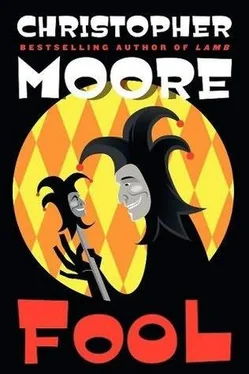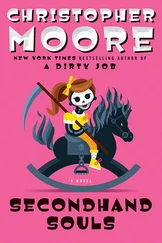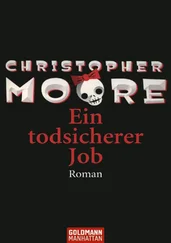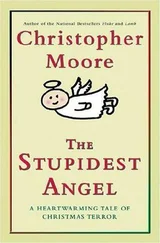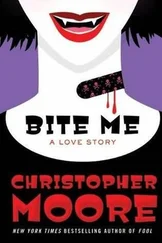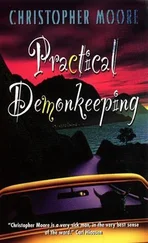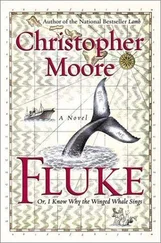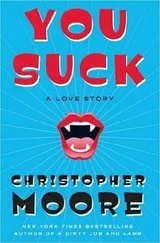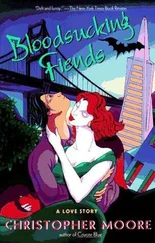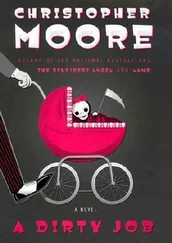“C’est la vie,” [47] C’est la vie —fucking French for “that’s life.”
said Jeff, in perfectly incomprehensible fucking French.
Later, as I was holding audiences with the public, there entered the great hall three ancient, bent figures. The witches of Great Birnam Wood. I suppose I’d always known they’d show up at some time or another. Drool ran and hid in the kitchen. Jeff jumped on my shoulder and screeched at them. (Jeff the monkey, not the queen.)
“A year has passed for witches three,
And we are here to collect our fee,” said Rosemary, the green, cattoed witch.
“Oh, for fuck’s sake, you’re on with the rhyming again?”
“A need was filled, a promise made,
For service done we must be paid,” the witches chanted in unison.
“Just stop the rhyming,” said I. “And those rags are entirely too heavy for this climate. You’ll get a rash on your warts and carbuncles if you’re not careful.”
“You’ve been made a king and enchanted your true love to be yours forevermore, fool. We only want what is our due,” said Sage, the most warty of the three.
“Rightly so, rightly so,” said I. “But Cordelia is not enchanted to love me. She is with me of her own free will.”
“Balderdash,” said Parsley, the tall witch. “We gave you three puffballs for three sisters.”
“Aye, but I used the third to enchant Edgar of Gloucester, so he would fall in love with a laundress at his castle named Emma. Lovely lass with smashing knockers. She’d been mistreated by the bastard brother—only seemed just.”
“Still, the spell was used. We will have our payment,” said Rosemary.
“Of course. I have more treasure than you crones could carry. Gold? Silver? Jewels? But Cordelia doesn’t know of all of your manipulations, nor that the ghost was her mother, and she mustn’t ever. If you agree, name your reward, I’ve important kingly things to accomplish and my monkey is hungry. Name your price, crones.”
“Spain,” said the witches.
“Fuckstockings,” said the puppet Jones.
YOU CHEEKY GIT—AN AUTHOR’S NOTE
I know what you’re thinking: “Why, are you, an American comic novelist, thrashing around in the deep end of genius with the greatest artist of the English language who ever lived? What did you think you might possibly achieve besides peeing in the pool and drowning in your own shallow aspirations?”
You’re thinking: “Shakespeare writes a perfectly elegant tragedy that functions perfectly well and you can’t leave it in peace. You have to put your greasy hands all over it, befoul it with badger shagging and monkey spunk. I suppose we just can’t have nice things.”
Okay, first, good point. And second, I can’t believe you think like that…
But you’re right, I’ve made a dog’s breakfast of English history, geography, King Lear, and the English language in general. But in my defense—well—I don’t really have a defense, but let me give you an idea from whence one begins when trying to retell the story of King Lear.
If you work with the English language, particularly if you work with it as dog-fuckingly long as I have, you are going to run across Will’s work at nearly every turn. No matter what you have to say, it turns out that Will said it more elegantly, more succinctly, and more lyrically—and he probably did it in iambic pentameter—four hundred years ago. You can’t really do what Will did, but you can recognize the genius that he had to do it. But I didn’t begin Fool as a tribute to Shakespeare; I wrote it because of my great admiration for British comedy.
I began with the idea of writing a story about a fool, an English fool, because I like writing rascals. I fired the first shot across the bow several years ago, over breakfast in New York with my American editor, Jennifer Brehl, on a morning after I had taken entirely too much sleep medication. (New York kind of freaks me out. I always feel like I’m a sponge mopping the anxiety from New York’s brow.)
“Jen, I want to do a book about a fool. But I don’t know whether I should just do a generic fool, or Lear’s fool.”
“Oh, you have to do Lear’s fool,” she said.
“Lear’s fool it is, then,” said I, as if that entailed no more effort than saying it.
Then she slowly melted in her chair and was replaced by a hookah-smoking caterpillar that said nothing but, “Wah, wah, wah, wah, wah,” but did pay for breakfast. I’ve blacked out the rest of the morning. (Business traveler’s tip: If you’re still not asleep after a second sleeping pill, DO NOT take a third.)
So into the deep end I dove, spending nearly two years immersed in Shakespeare’s work: performed live, in written form, and on DVD. I must have watched thirty different performances of King Lear, and frankly, about halfway into my research, after listening to a dozen different Lears rage at the storm and lament what complete nitwits they had been, I wanted to leap onstage and kill the old man myself. For while I respect and admire the talent and stamina it takes for an actor to play Lear, as well as the eloquence of the speeches, a person can take only so much whining before he wants to sign up for the Committee to Make Elder Abuse an Olympic Sport. Amid all the attractions at Stratford-upon-Avon, I think they should add one where participants are allowed to push King Lears off a high precipice. You know, like bungee jumping, only no bungee. Just, “Rage, wind, blow, crack your cheeks! Ahhhhhhhhhhh!” Splat! Sweet, sweet silence. Okay, perhaps not. (They have a Shakespeare Hospice at Stratford, by the way, for those who ticked the “Not to Be” box.)
Once one decides to retell Lear, time and place become problems that must be addressed.
According to a history of British monarchs (The Kings of Britain) compiled in 1136 by the Welsh cleric Geoffrey of Monmouth, the real King Leir, if indeed he existed, lived in 400 B.C., or about the time between Plato and Aristotle, at the height of the Greek empire, when there were no great castles in England, the counties that Shakespeare refers to in his play were long from being established, and at best, Leir would have been some sort of a tribal leader, not the sovereign of a vast kingdom with authority over a complex sociopolitical system of dukes, earls, and knights. A mud fortress would have been his castle. In the play, Shakespeare makes references to Greek gods, and indeed, legend says that Leir’s father, Bladud, who was a swineherd, a leper, and king of the Britons, journeyed to Athens looking for spiritual guidance, and returned to build a temple to the goddess Athena at Bath, where he worshipped and practiced necromancy. Leir became king rather by default when Bladud’s essential bits dropped off. The battle for souls between the Christians and the pagans that I portray in Fool probably took place closer to around A.D. 500 to 800, rather than during Pocket’s imagined thirteenth century.
Time, then, becomes a bit of a problem, not just in relation to history, but to language as well. (The time frame of the play seemed to bollocks up even Shakespeare, for at one point he has the fool rattle off a long list of prophecies, after which he says, “This prophecy Merlin shall make; for I live before his time” (Act III, Scene 2). It’s as if Will threw his quill in the air and said, “I know not what the hell is going on, therefore I shall cast this beefy bit of bull toss to the groundlings and see if it slides by.” No one appears to know what kind of language they were speaking in 400 B.C., but it certainly wasn’t English. And while Shakespeare’s English is elegant and in many ways revolutionary, much of it is foreign to the modern English reader. So, in the tradition of Will throwing his quill into the air, I decided to set the story in a more or less mythical Middle Ages, but with the linguistic vestiges of Elizabethan times, modern British slang, Cockney slang (although rhyming slang remains a complete mystery to me), and my own innate American balderdash. (Thus Pocket refers to the quality of Regan’s gadonkage and Thalia refers to St. Cinnamon driving the Mazdas out of Swinden—with full historical immunity.) And for those sticklers who will want to point out the anachronisms in Fool, rest easy, the whole book is an anachronism. Obviously. There are even references to the “Mericans” as a long extinct race, which places our own time somewhere in the distant past. (“Long ago in a galaxy far away,” if you get my meaning.) It was designed thus.
Читать дальше
